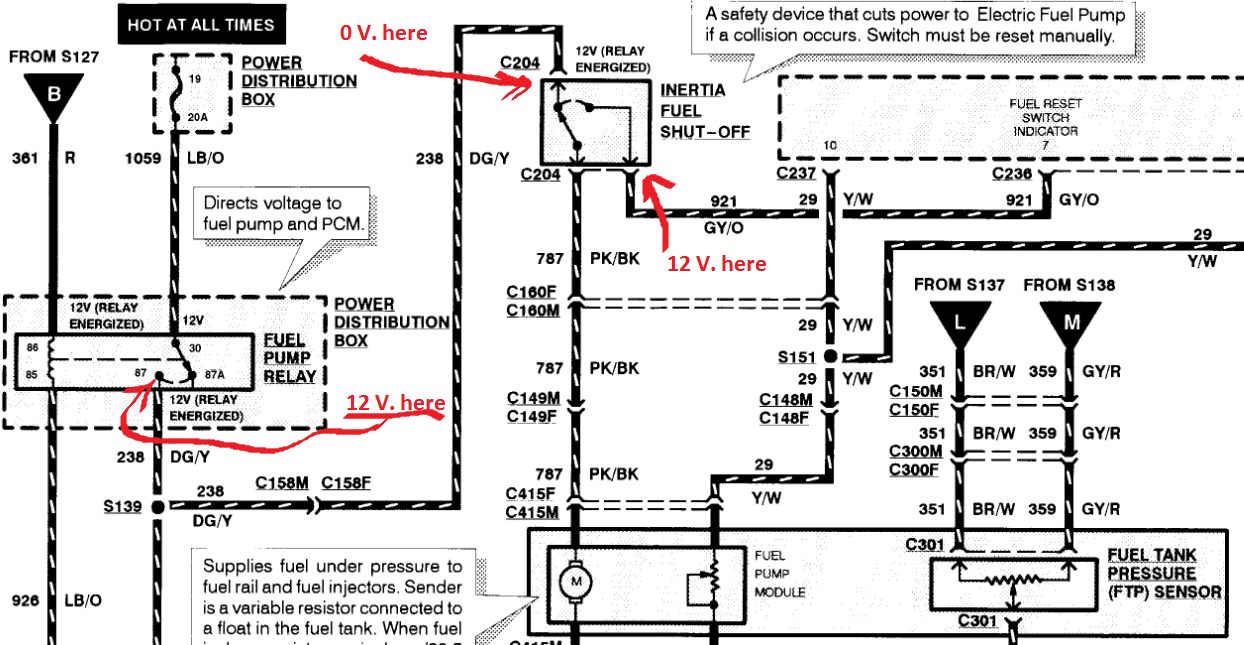When it comes to understanding the electrical system of your Ford F150, having a clear understanding of the fuel pump wiring diagram is crucial. The fuel pump is a vital component of your vehicle, responsible for delivering fuel from the tank to the engine. By familiarizing yourself with the Ford F150 Fuel Pump Wiring Diagram, you can troubleshoot electrical issues and ensure that your fuel pump is functioning properly.
Why are Ford F150 Fuel Pump Wiring Diagrams essential?
Understanding the wiring diagram for your Ford F150 fuel pump is essential for the following reasons:
- Allows you to identify the various components of the fuel pump system
- Helps you trace the electrical connections and understand how they work together
- Aids in diagnosing and troubleshooting electrical issues related to the fuel pump
How to read and interpret Ford F150 Fuel Pump Wiring Diagrams effectively
When reading a Ford F150 Fuel Pump Wiring Diagram, follow these steps to interpret it effectively:
- Identify the key components of the fuel pump system, such as the fuel pump relay, fuel pump fuse, and fuel pump connector
- Understand the color-coding and symbols used in the diagram to differentiate between different wires and connections
- Trace the flow of electricity through the system to understand how the fuel pump operates
Using Ford F150 Fuel Pump Wiring Diagrams for troubleshooting electrical problems
Ford F150 Fuel Pump Wiring Diagrams can be invaluable for troubleshooting electrical problems related to the fuel pump. By following the diagram and testing the various components, you can pinpoint the source of the issue and make the necessary repairs. Some common electrical problems that can be diagnosed using the wiring diagram include:
- Blown fuses or relays
- Faulty wiring connections
- Malfunctioning fuel pump
Importance of safety when working with electrical systems
When working with electrical systems and using wiring diagrams, it is crucial to prioritize safety. Follow these safety tips and best practices to ensure your well-being:
- Always disconnect the battery before working on any electrical components
- Use insulated tools to prevent electrical shocks
- Avoid working on electrical systems in wet or damp conditions
- If you are unsure about any electrical work, seek the assistance of a professional mechanic
Ford F150 Fuel Pump Wiring Diagram
Wiring Diagram Ford F150 Fuel Pump – Wiring Digital and Schematic

Wiring Diagram Ford F150 Fuel Pump

Fuel Pump Wiring Diagram 92 Ford F150

[DIAGRAM] Ford F 150 Fuel Pump Wiring Diagram FULL Version HD Quality
![Ford F150 Fuel Pump Wiring Diagram [DIAGRAM] Ford F 150 Fuel Pump Wiring Diagram FULL Version HD Quality](https://i1.wp.com/ww2.justanswer.com/uploads/FO/fordguy4u/2013-05-21_204144_a1.jpg)
1993 Ford F150 Fuel Pump Wiring Diagram – Organicled

Ford F-150 Fuel Pump Wiring Diagram
